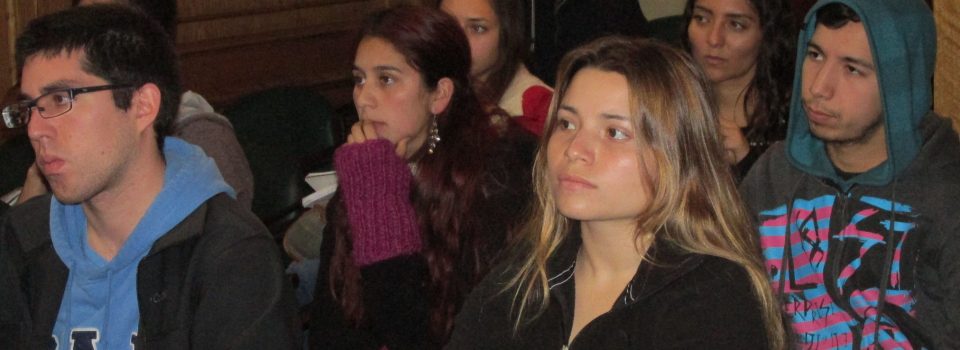Students of Marine Biology of University of Valparaiso visit IFOP
July 11th, 2016A group of students of Marine Biology of the University of Valparaiso, visited Instituto de Fomento Pesquero, accompanied by academician of this university, Fernando Balbontín.
Professor Balbontín explained the purpose of the activity: “We have visited IFOP mainly, because it is the one in charge of carrying out studies of our fisheries resources. Students have been watching presentations on plankton, age and growth of the species and the way studies of resources are carried out, in order to calculate catch quota, this is very important for students because shows them the different subjects they will see in college, but here they see it in a practical way, for instance, the implementation of all these knowledge.
The presentations were all very good, they allow students to visualize the complexity of studying marine species and calculation of the stock.”
Guillermo Moyano, researcher of the Laboratory of Age and Growth, explained to attendees in general the different tasks carried out in the section, among these, he highlighted the processes for preparing otolith readings, protocols for estimating the age of the various resources analyzed and validation methodologies of age and growth, among others. Then students attended the Age and Growth laboratory, where they interacted with all the professionals of the section, who taught the processes that develop each one in a practical way. Besides, they could use the different laboratory equipments, such as magnifiers, microscopes, cutting machines, etc.
Jorge Angulo, marine biologist of lab plankton, told us “the idea is to show part of what we do in our team with the data we collect along Chilean coast. The places where these variables are measured and the possible lines of research based on these raw materials were highlighted. The aim of the presentation is to show students how they can use their knowledge in a practical way to solve problems of national importance. Through the presentation in the auditorium and the visit to the lab, it is intended to illustrate the chain of processes involved in the development of a technical report referred to the description of the ecosystems where fishing resources live.”
Ignacio Payá referred to the process of how the annual catch quota is determined, including the various components and highlighting the changes of the new Fishing Law, and especially the role of IFOP and technical scientific committees. He presented a summary of the draft biological benchmarks and how these related, the targets levels and limits for the exploitation of resources. Finally, he summed up his experience as an evaluator of stock, stressing the positive and negative aspects of this interesting career.
